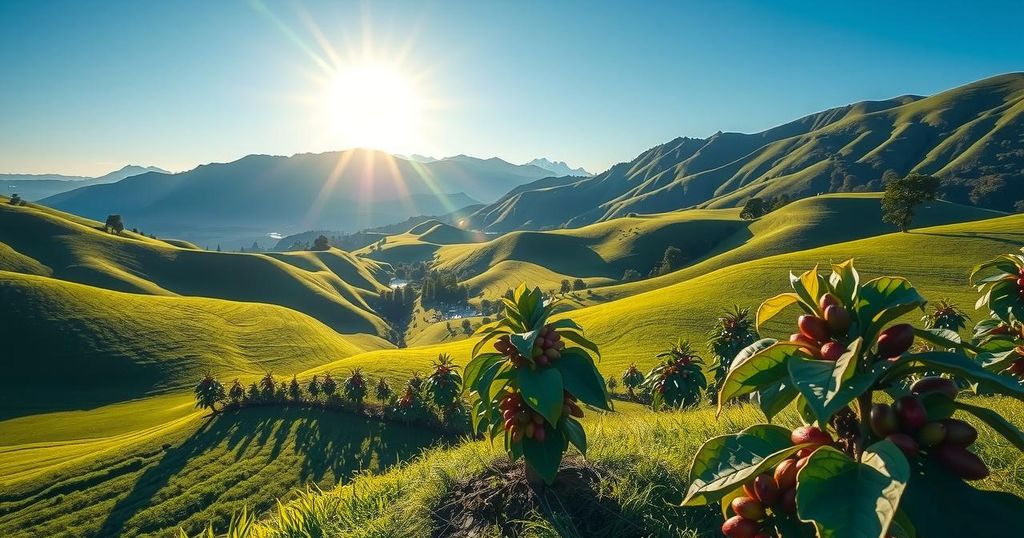Catherine Bashiama cultivates a rare, climate-resistant coffee species in South Sudan, aiming to uplift her family from poverty. The excelsa coffee variety, discovered over a century ago, is attracting attention from farmers and the international community amid a global coffee crisis linked to climate change, which has driven prices to historic highs.
Catherine Bashiama tends to a coffee tree she nurtured from a seedling in Nzara County, South Sudan, eagerly awaiting its first fruit buds after three years. Despite never having cultivated coffee in her village, she hopes that a rare, climate-resistant species will improve her family’s financial situation. “I want to send my children to school so they can be the future generation,” Bashiama asserts proudly, as a mother of twelve, underscoring her commitment to her children’s future.
Excelsa coffee, discovered over a century ago in South Sudan, is generating enthusiasm among local cultivators, while also capturing the attention of international stakeholders. This interest arises in the context of a global coffee crisis predominantly attributed to climate change. As various leading coffee-producing nations face challenges related to drier and less predictable climatic conditions, coffee prices have soared to unprecedented levels, prompting significant efforts within the industry to seek adaptive solutions to ensure sustainability and profitability.
In summary, the emergence of excelsa coffee as a viable crop amidst the challenges posed by climate change offers hope to farmers like Catherine Bashiama. Her aspirations for her children’s education reflect a broader potential for economic improvement within affected communities. Given the rising global coffee prices, the focus on resilient coffee varieties could pave the way for sustainable agricultural practices, benefitting both local farmers and the international market.
Original Source: subscriber.politicopro.com






